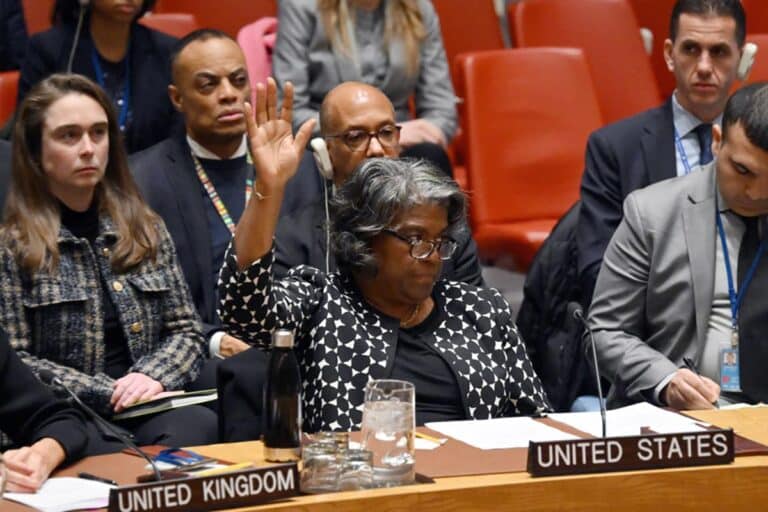
The war between Hamas and Israel has surpassed 138 days, with each week bringing new stories of both tragedy and hope.
Here are the main stories from this past week.
1. Arab Israelis’ access to Al-Aqsa could be restricted during Ramadan
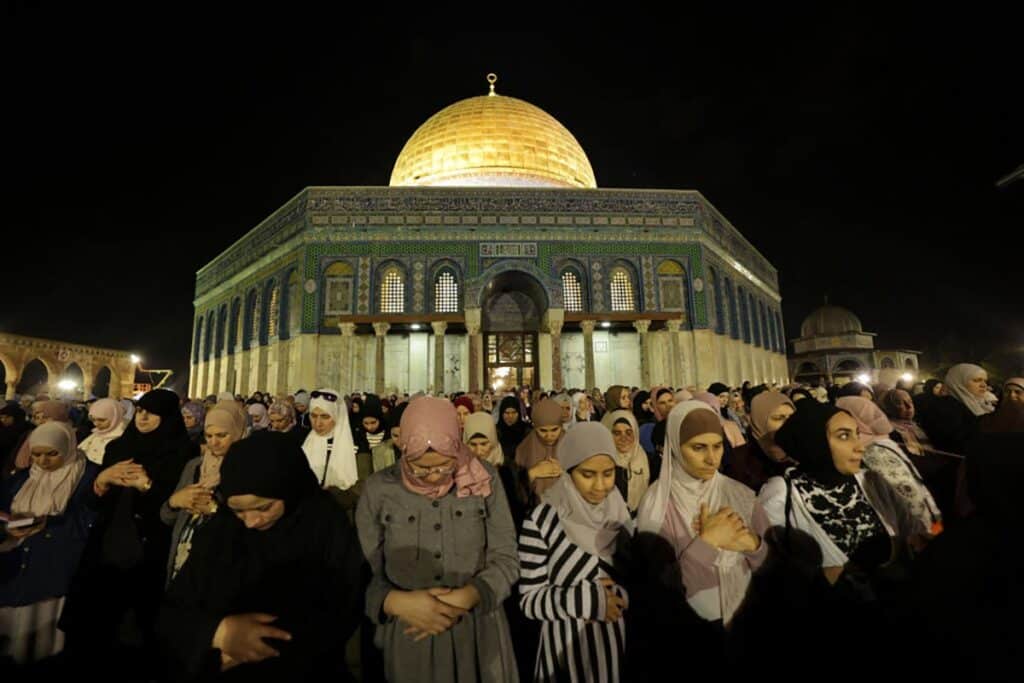
Prime Minister Benjamin Netanyahu and National Security Minister Itamar Ben-Gvir sparked outrage after they reportedly decided to restrict visits by Arab Israelis to the Temple Mount and Al-Aqsa Mosque during the month of Ramadan, which begins on March 10.
According to Israeli media, the IDF and Shin Bet warned that restricting Arab Israelis from visiting the Temple Mount could risk escalating the war into a religious conflict and increase support for Hamas. They recommended allowing Arab Israelis to visit the Temple Mount without restrictions. However, Netanyahu and Ben-Gvir reportedly rejected this recommendation.
Shortly after the decision was reported on Sunday, War Cabinet Minister Benny Gantz published a statement insisting that no final decision had been reached on the matter and that any decision would be based on security considerations.
Why it matters: The month of Ramadan is often marked by an uptick in terrorism and violence in Jerusalem and the West Bank. Hundreds of thousands of Muslims typically visit Al-Aqsa during the month. While age-based restrictions are often placed on Palestinians from the West Bank, Arab Israelis are usually not included in these restrictions.
Israel’s decisions on access to the Temple Mount have had implications in the past. In May 2021, police held up buses of Arab Israelis who were headed to Al-Aqsa for Laylat al-Qadr, the most sacred night of Ramadan, citing concerns that some of the worshippers were planning on starting riots.
The move sparked widespread outrage and violence, flaring already raging tensions, eventually leading to the outbreak of the May 2021 conflict, which included unprecedented violent riots throughout Israel.
2. All eyes on Rafah
On Monday, Maj. Gen. (res.) Yaakov Amidror, senior fellow at the Jerusalem Institute for Strategy and Security, told reporters that the IDF is expected to complete its operations in Khan Yunis in early March and, if no hostage deal is reached, will likely start moving into Rafah shortly thereafter.
Rafah is Hamas’ last stronghold in Gaza. Ending the war without entering the city would leave four entire Hamas battalions intact and would make it difficult, if not impossible, to apprehend Hamas leaders Yahya Sinwar and Mohammed Deif. Many of the remaining hostages are also believed to be in Rafah.
Israel’s planned invasion of Rafah has drawn concern from world leaders as an estimated 1.5 million Palestinians are currently believed to be sheltering in and around the city and an invasion could exacerbate the humanitarian crisis.
Leaders from the U.S., the U.K., and the E.U. have called on Israel not to invade the city, at least until the safety of civilians currently sheltering in the area can be assured. In a recent proposed U.N. resolution, the U.S. called on Israel not to invade Rafah at all.
Digging deeper: While Israeli officials have insisted civilians will be evacuated from Rafah before any offensive is launched, it remains unclear how exactly this will be accomplished. On Thursday, Bloomberg reported that the IDF still hasn’t decided on a plan, making it unlikely that such an evacuation could be accomplished before Ramadan starts.
3. Protests demanding elections
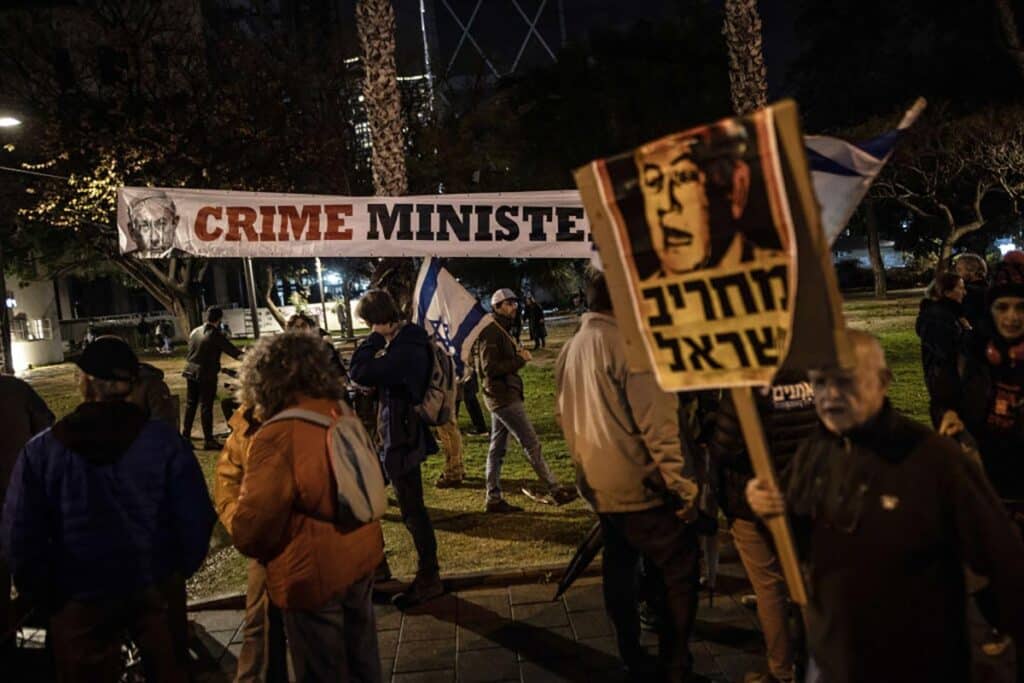
Over the weekend, protesters returned to Kaplan Street in Tel Aviv — the main site of last year’s protests against the judicial reforms — to advocate for a new cause: a new round of elections.
The protests took place simultaneously in several cities across Israel, including Jerusalem, with demonstrators demanding that a date for national elections be declared immediately.
The protesters are voicing several key grievances, including the government’s failure to bring the remaining hostages home, a budget they believe misallocates funds, and a proposed law to extend military service for soldiers and reservists while still not requiring Haredi young men to serve.
Digging deeper: In Israel, the parliament (known as the Knesset) is supposed to serve a four-year term, but it rarely ever makes it through a full term. This has been especially true in recent years — Israel’s last election in November 2022 was the country’s fifth in just three years.
The current government operates with a narrow majority. Under Israeli law, the Knesset can choose to dissolve itself and trigger new elections with 61 votes (out of the 120-seat parliament).
At present, the coalition holds 64 seats, while the opposition has 56. For the opposition to bring about elections, it would require at least five coalition members to vote in favor, which is easier said than done.
4. US vetoes UN Security Council resolution
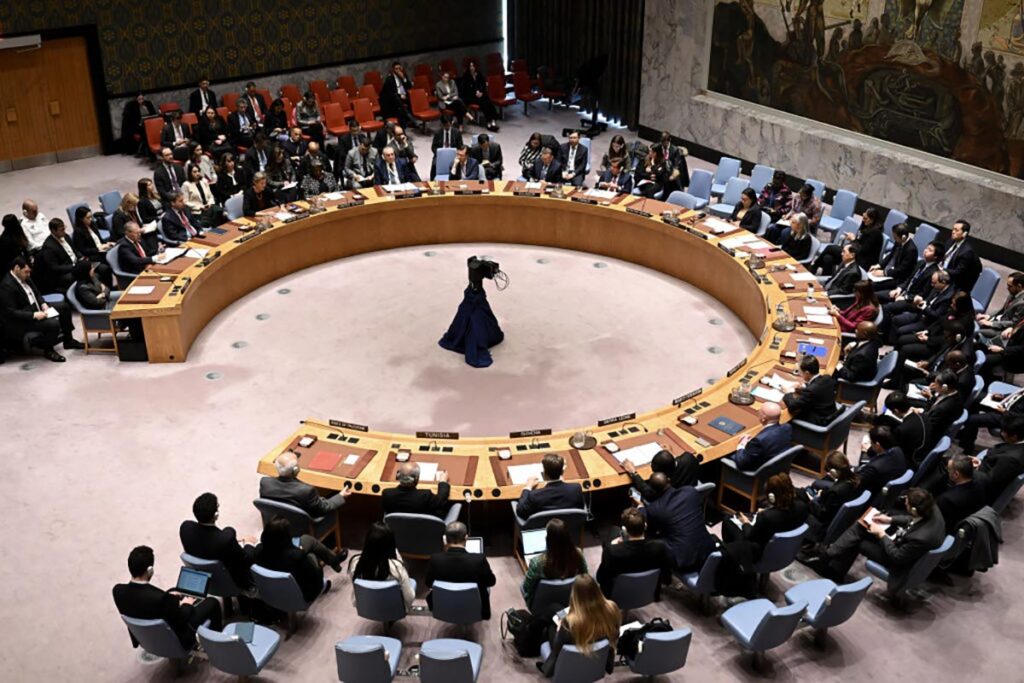
On Tuesday, the U.S. vetoed a U.N. Security Council resolution calling for an immediate humanitarian ceasefire in Gaza, noting that the resolution did not also require Hamas to release the rest of the hostages and did not mention Hamas by name.
U.S. Ambassador to the U.N. Linda Thomas-Greenfield told the council that this resolution would have hindered rather than helped efforts to reach a ceasefire and hostage release deal.
The U.S. proposed an alternative resolution that calls for a temporary ceasefire, opposes a major Israeli ground invasion in Rafah, condemns Hamas, and expresses support for a two-state solution.
The draft U.S. resolution says that “under current circumstances, a major ground offensive into Rafah would result in further harm to civilians and their further displacement including potentially into neighboring countries.”
Why it matters: While the U.S. has consistently vetoed resolutions critical of Israel, this is the first time that the U.S. has proposed its own resolution calling for a temporary ceasefire, even if it conditions that ceasefire on the release of the hostages.
The call for Israel not to invade Rafah reflects growing tensions between the U.S. and Israel. The relationship between U.S. President Joe Biden and Prime Minister Benjamin Netanyahu has been strained during the war due to several factors, such as disagreements about the entry of aid to Gaza and remarks made by extremist members of the Israeli government.
5. Brazil president’s comments
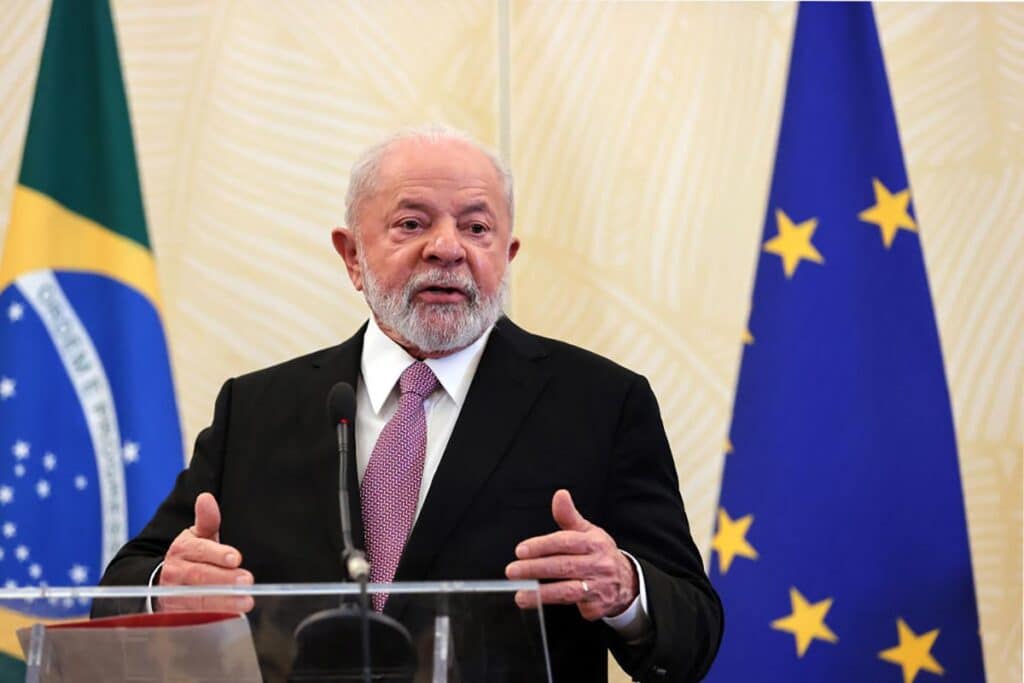
Brazilian President Luiz Inacio Lula da Silva sparked outrage on Sunday after he compared Israel’s conduct in the war in Gaza to the Nazis and Holocaust.
Lula said that the situation in Gaza is “not a war…but a genocide,” characterizing it as “a war between a highly prepared army and women and children.”
The Brazilian president added that what is happening in Gaza “hasn’t happened at any other moment in history” except for “when Hitler decided to kill the Jews.”
Netanyahu expressed outrage at Lula’s comments, saying the president had “crossed a red line.” Foreign Minister Israel Katz declared Lula “persona non grata” in Israel until he apologizes for his remarks and summoned the Brazilian ambassador to Israel to the Yad Vashem Holocaust memorial for a reprimand. In response, Brazil recalled its ambassador to Israel.
Digging deeper: Since taking office in 2022, Lula has been a staunch supporter of Iran and Russia and has consistently condemned Israel since Oct. 7.
Lula’s comments received backing from the presidents of Colombia (the country, not the university) and Bolivia, two other South American nations that have consistently condemned Israel since the war’s outset. Notably, Colombia recalled its ambassador from Israel shortly after the war began.
The claim that Israel is committing genocide against Palestinians has become more normalized globally, particularly as Israel recently defended itself against this accusation at the International Court of Justice.
However, it’s important to distinguish between war casualties and intentional genocide. Read our article that debunks common myths about Israel, including the genocide claim, and learn about the measures the IDF is taking to protect civilian lives in Gaza.
Originally Published Feb 23, 2024 11:38AM EST


